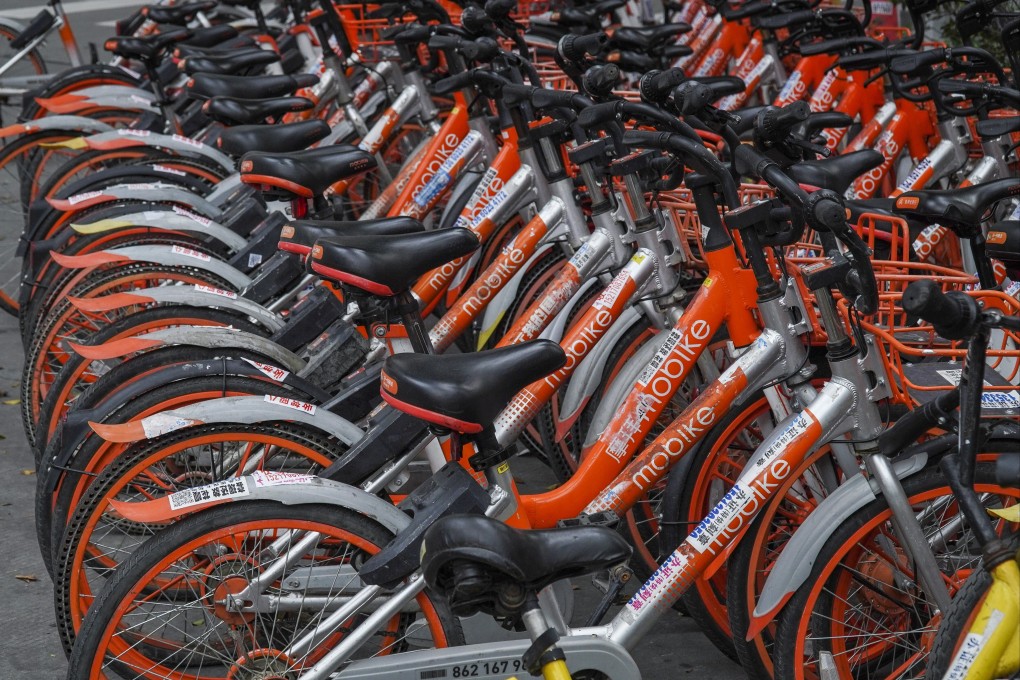The rise and fall of Mobike and Ofo, China’s bike-sharing twin stars
- Mobike has officially halted operations of its mobile app and WeChat mini programme, fully merging under its parent company Meituan
- The Beijing-based brand and rival Ofo used to dominate China’s bike-sharing industry, but their cash-burning tactics failed to pay off

Ofo is also a shadow of its former self, having never recovered from digging itself into a financial hole two years ago. Early this year, it abandoned its bike-sharing interface and transformed itself into a shopping app, offering to compensate the millions of users it still owes deposit money with rebates for shopping in lieu of refunds. Its bikes are rarely seen on China’s streets anymore.
Mobike’s announcement last week marks the end of a duopolistic era for China’s bike-sharing industry, which exploded in popularity a few years ago.
In 2015, Mobike and Ofo were considered pioneers in popularising dockless, GPS-connected bikes rented through apps. Unlike traditional bike rentals with fixed parking stations, Mobike and Ofo bikes could be locked and unlocked using apps, allowing them to be left and picked up from anywhere in the cities they operated in.